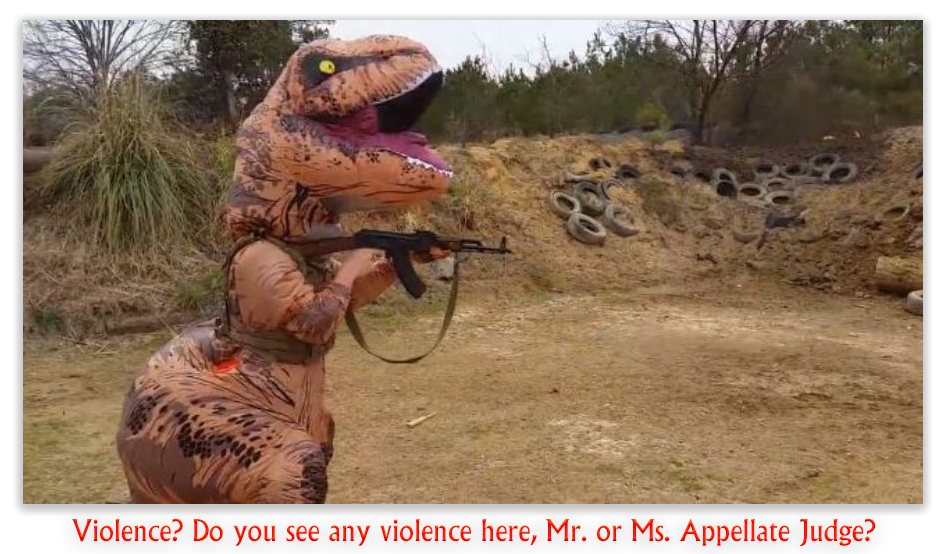We post news and comment on federal criminal justice issues, focused primarily on trial and post-conviction matters, legislative initiatives, and sentencing issues.

4TH CIRCUIT SIMMS DECISION TEES UP 924(c) DEBATE FOR SUPREME COURT
The vigorous debate since the Supreme Court decided Sessions v. Dimaya last year at first seemed to surround whether the residual clause of 18 USC 924(c) – which defines “crime of violence” to include any offense that “by its nature, involves a substantial risk that physical force against the person or property of another” – was unconstitutionally vague. That is what the Supreme Court said about the same language in the Armed Career Criminal Act (in Johnson v. United States) and in Dimaya last spring referring to 18 USC 16(b).
 But in the last few months, the argument has morphed into some more basic: when judging whether the offense underlying an 18 USC 924(c) charge is violent, should a court use the categorical approach (which asks whether the offense in its ordinary form is violent, not what the defendant did in the particular case under review)? Or should the court instead look only at how the defendant in the case under review committed the offense?
But in the last few months, the argument has morphed into some more basic: when judging whether the offense underlying an 18 USC 924(c) charge is violent, should a court use the categorical approach (which asks whether the offense in its ordinary form is violent, not what the defendant did in the particular case under review)? Or should the court instead look only at how the defendant in the case under review committed the offense?
Three circuits have embraced the conduct-based approach, the 1st in United States v. Douglas, the 2nd in United States v. Barrett, and the 11th in Ovalles v. United States. Three others have backed the categorical approach, the 5th in United States v. Davis, the 10th in United States v. Salas, and the D.C. Circuit in United States v. Eshetu. Two weeks ago, the Supreme Court granted the government’s petition to review the 5th Circuit’s Davis decision.
The Circuit split deepened last Thursday with the 4th Circuit’s long-awaited decision in United States v. Simms. In a contentious 100-page decision, the en banc Circuit decided 8-7 that whether an underlying offense supporting a 924(c) conviction is a crime of violence, a trial court must use the categorical approach the Supreme Court adopted and used in Leocal v. Ashcroft. What’s more, using the categorical approach, the 4th said, it is clear that a conspiracy to commit a Hobbs Act robbery (18 USC 1951) is not a crime of violence.
By extension, this means that in the 4th Circuit, no conspiracy to commit a violent crime is itself a violent crime (although it is in the 2nd Circuit).
 The 4th Circuit focused on the phrase “by its nature” in 924(c)(3)(B), saying that the language directs courts to consider only the basic or inherent features of “an offense that is a felony,” and that the phrase “directs courts to figure out what an offense normally… entails, not what happened to occur on one occasion. Had Congress intended a conduct-specific analysis instead, it presumably would have said so; other statutes, in other contexts, speak in just that way… We cannot adopt a reading of 924(c)(3)(B) that renders part of the statute superfluous over one that gives effect to its ‘every clause and word’.”
The 4th Circuit focused on the phrase “by its nature” in 924(c)(3)(B), saying that the language directs courts to consider only the basic or inherent features of “an offense that is a felony,” and that the phrase “directs courts to figure out what an offense normally… entails, not what happened to occur on one occasion. Had Congress intended a conduct-specific analysis instead, it presumably would have said so; other statutes, in other contexts, speak in just that way… We cannot adopt a reading of 924(c)(3)(B) that renders part of the statute superfluous over one that gives effect to its ‘every clause and word’.”
As important as Simms may be to the 924(c) debate, it is clear that it is not the last word. The Supreme Court is going to resolve the sharp circuit split in Davis as early as June, although it is could well hold off oral argument and a decision to the term beginning in October 2019.
United States v. Simms, 2019 U.S. App. LEXIS 2341 (4th Cir. Jan. 24, 2019)
– Thomas L. Root

